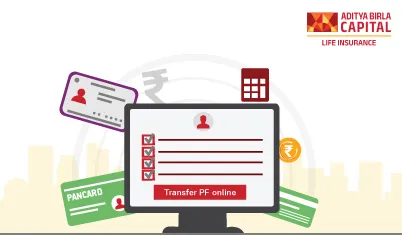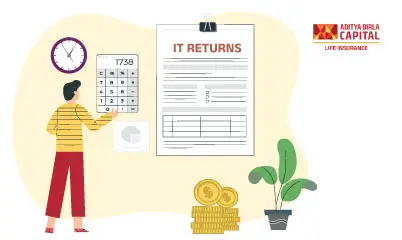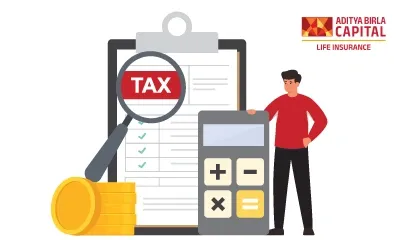Any profit or gain from selling a "capital asset" is called a "capital gain." Investments like houses, lots, stocks, mutual funds, jewels, trademarks, etc., are considered capital assets. Since the gain or profit is regarded as "income," you must pay tax on that specific amount in the same year you transfer the capital asset.
Additionally, capital gains are irrelevant because there is just a transfer of ownership and no sale of inherited property. The assets obtained as gifts or inherited are expressly excluded from taxation by the income tax department. However, capital gains tax would be applied if the person who inherited the property intended to sell it.
An Overview of Capital Gains Tax in India
All profits and losses realised through the sale of capital assets are subject to taxes, as stated in the Income Tax Act. Any profit you make from a transaction like this is considered income. Consequently, you will be required to pay tax on it.
A capital asset may be anything, including a home, land, stocks, bonds, etc. According to laws, the tax paid is known as the Capital Gains Tax. The tax obligation must be settled during the fiscal year in which the transfer of capital assets occurs.
It is important to remember that when you inherit a property, these tax regulations do not apply. This is so that there isn't a sale, only a change in ownership. Additionally, this tax does not apply to assets acquired via gifts or wills.
What Kinds of Capital Assets Are There?
The two types of capital assets are:
1. Short-Term Capital Assets (STCA):
An asset kept for 36 months or less is considered an STCA. However, 36 months has been lowered to 24 months in FY 2017–18 for immovable assets such as buildings, homes, and land. As a result, if you sell your home after 24 months of ownership, the income will be regarded as a short-term capital gain.
2. Long-Term Capital Assets (LTCA):
An asset kept longer than 36 months is referred to as an LTCA. Therefore, the income from your property will be regarded as a long-term capital gain if you sell it after owning it for more than 36 months.
How to Calculate Property Capital Gains Tax?
The duration a property has been owned affects how capital gains are calculated. However, let's first learn a few phrases that are essential for computation before we start with the methods to compute capital gains:
- Full Value Consideration (Final Sale Price):
The amount paid by the buyer for the seller's capital asset
- Cost of Acquisition:
This is the asset's worth when the seller purchases it.
- Cost of Improvement:
A seller’s costs to upgrade or modify a capital asset.
- Cost of Transfer:
The cost of transfer includes any fees incurred during the asset sale, such as registration fees, brokerage fees, or other charges.
- Indexed Cost of Acquisition:
This cost is determined using the Cost Inflation Index (CII) to adjust the inflation values that occurred over the asset's holding period. Additionally, this cost may be seen as the ratio of the years in which an asset was purchased or sold by the seller or the FY 2001–2002. (Whichever is multiplied by the cost of acquisition later)
- Indexed Cost of Improvement:
This cost is determined by multiplying the required improvement's price by the cost inflation index for the year, then dividing that result by the CII for the year the progress was made.
Calculation of Capital Gains
To compute capital gains tax, you must collect the following data. You may use an internet calculator to do the computation if you have the necessary information.
- Selling Price
- Purchase Price
- Sale Specifics (Date of sale and more)
- Purchase Information
- Investment Information
The Terms You Must Understand
The following terms are necessary for the calculation:
- Cost of Acquisition:
It is the price you paid to purchase the property.
- Cost of Improvement:
The costs associated with modifying or enhancing the capital asset.
- Full Value Consideration:
The payment is made in exchange for the entire transfer.
- Cost Inflation Index, or CII:
It is a concept used when discussing long-term capital gains. Every year, the index is determined and published by the government.
How to calculate a property's capital gains
You can determine the capital gains on your home after you have a basic grasp of the meanings of the different keywords. The formulae needed to compute capital gains correctly are provided here.
- The following equation is used to compute long-term capital gains:
Long-term capital gain = full value of consideration - (indexed cost of purchase + indexed cost of improvement + indexed cost of sale/transfer)
The rate at which capital gains tax is calculated varies yearly.
- The following equation is used to compute short-term capital gains:
Short-term capital gain = full value of consideration - (cost of purchase + cost of improvement + cost of sale/transfer)
The taxpayer's tax bracket determines short-term profits' capital gains tax rate.
The Requirements for Inherited Securities
The length of time the previous owner held the asset is considered when determining whether an asset is a short-term or long-term capital asset, whether acquired via a gift, bequest, succession, or inheritance.
The time frame for bonus shares or rights issues is measured starting on the day when the bonus shares or rights issues were distributed.
Any Tax Deductions to Lower Capital Gains?
An asset owner may lower their capital gains tax by the Income Tax Act. Let's consider how:
- Section 54F:
Your total capital gain tax will be excluded if you utilise 100% of the proceeds from selling a house or piece of land to build a new home. There are a few restrictions placed on it, however.
- Section 54EC:
The tax obligation may be reduced if Long Term Capital Gains from the sale of land is utilised to purchase Capital Gain Bonds. Additionally, you may take advantage of tax reductions by depositing such taxes in the bank under the Capital Gains Account Scheme.
<br
What does Bond Capital Gains Tax mean?
Within six months following the sale of the property, people may invest in certain bonds, such as those issued by Rural Electrification Ltd. and the National Highway Authority of India, by Section 54EC of the IT Act. Before three years, capital gains cannot be redeemed.
The bond offers a guaranteed interest rate to the buyer. A person may invest up to Rs. 50 lakhs in capital gain bonds in a fiscal year. Additionally, the benefit is limited to long-term capital bonds.
Case 1: Property Sales of a House
The following costs are subtracted from the overall selling price:
- Commission or brokerage fees paid to find the buyer.
- Stamp paper costs
- Expenses connected with travel and transfers.
- Expenditures connected to real estate inheritance, such as those incurred during the will-writing and succession certification processes. In certain circumstances, it also includes the executor's fees.
Case 2: Shares Are Sold
What you need to know about share sale-related deductions are provided here.
- Brokerage fees are associated with selling shares
- The Securities Transaction Tax (STT) cannot be deducted as a cost.
What Are Tax Savings Options Available for Capital Gains?
Here are a few methods if you want to avoid paying capital gains tax:
-
The transaction's profits may be used to buy a new home without taxing you. However, you must purchase a new home before submitting your income taxes for that year.
-
You may also put your long-term capital gains to work by purchasing three-year bonds from the National Highways Authority of India and the Rural Electrification Corporation Limited. Please note that the maximum amount you may invest in these bonds in a fiscal year is Rs. 50 lakhs.
-
You may still avoid paying tax on the capital gains if you don't immediately want to buy another piece of real estate. You may retain the money in any public sector bank for two to three years by depositing the proceeds in a Capital Gains Accounts Scheme (CGAS).
To avoid having the money classified as a capital gain and paying tax on it, you must invest the money in a property before the end of the time frame. A ready-made property must be purchased within two years, but if you choose a home still under construction, you have three years to complete the transaction.
-
If a new property developer does not deliver the property within three years of purchase, your tax will be waived.
-
To determine capital gains, stamp duty and registration fees are considered.
Investing in long-term equities may also help you avoid paying capital gains tax. Your tax obligation will be at its lowest if you can acquire high-quality stocks of successful businesses and keep them for a long time.
However, finding firms that perform regularly and stick with an investment for a long time is difficult. You could eventually need to sell the shares since the company's operations might change in the long run.
Additionally, by balancing the capital gains against any capital losses carried forward from earlier years, you may be able to lower your capital gains tax. The Income Tax regulations of India provide that if a person has any capital losses from prior years, they may offset their capital gains against those losses to lower their tax obligation.
It must be emphasised that long-term capital gains may offset only long-term capital losses. A short-term capital loss may only be used to offset short-term capital gains. The capital loss may also be carried over for a further eight years.
What should you watch out for when computing capital gains tax?
-
Capital gains tax is applicable at leaving, not upon admission. You likely have a general understanding of the investment capital gains tax. You could decide to give it more thought later on, however. This is because the capital gains tax only applies when you sell your investment. When you invest, no capital gains tax is due.
-
Invest with a time horizon and an exit plan. It's like completing just half your homework when you start an investment without considering an exit plan and time horizon. It's critical to have a defined departure plan and time range. You might inquire after learning about all the capital gains tax ramifications:
- Is the investment still in line with my financial objectives?
- Is it still compatible with my risk tolerance (ability to accept risks)?
- Do I feel confident investing knowing exactly when and how much capital gains tax I will owe upon exiting?
Conclusion
The incurred capital loss must have been disclosed in prior years' income tax filings; it must be highlighted. Getting money gains is now simply because of the market's abundance of investing possibilities. Additionally, if you reinvest wisely, the tax on capital gains may be lowered, resulting in significant savings.










